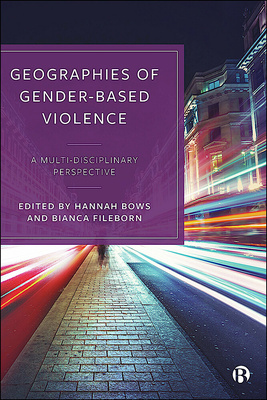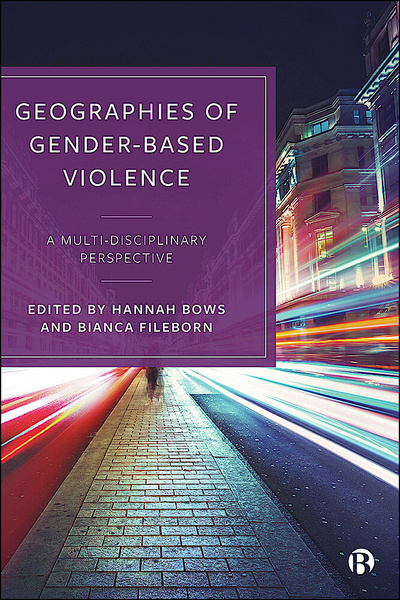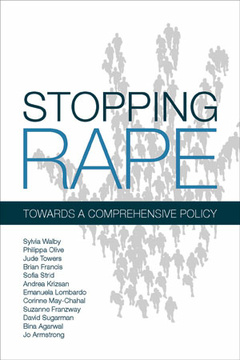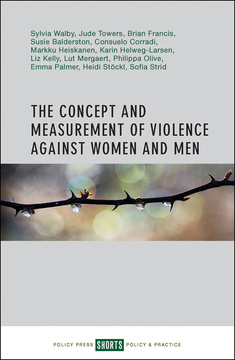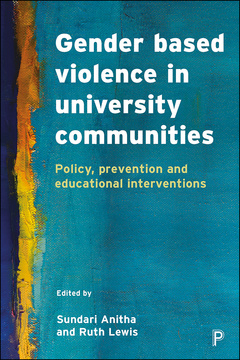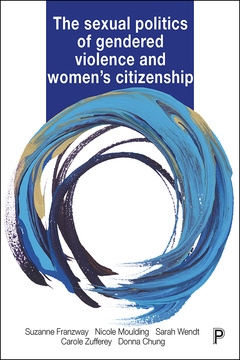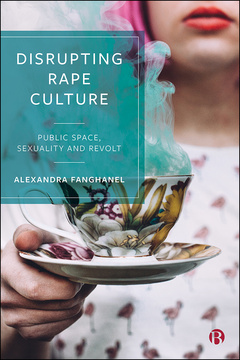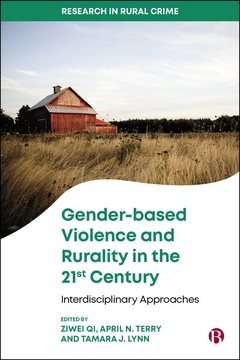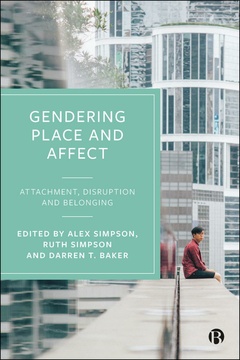Geographies of Gender-Based Violence
A Multi-Disciplinary Perspective
Edited by Hannah Bows and Bianca Fileborn
Published
30 Sep 2022Page count
288 pagesISBN
978-1529214505Dimensions
234 x 156 mmImprint
Bristol University PressPublished
30 Sep 2022Page count
288 pagesISBN
978-1529214499Dimensions
234 x 156 mmImprint
Bristol University PressPublished
30 Sep 2022Page count
288 pagesISBN
978-1529214512Imprint
Bristol University PressPublished
30 Sep 2022Page count
288 pagesISBN
978-1529214512Imprint
Bristol University PressWhat role does physical and virtual space play in gender-based violence (GBV)? Experts from the Global North and South use wide-ranging case studies - from public harassment in India and Kenya to harassment on Twitter - to examine how spaces can facilitate or prevent GBV and showcase strategies for prevention and intervention.
Students and academics from a range of disciplines will discover how existing research connects with practice and policy developments, the current gaps in research and a future agenda for GBV studies.
“This rich collection takes an intersectional approach to the continuum of gender-based violence (GBV) across international settings and types of spaces. These fresh perspectives will inspire researchers and students to reflect anew on the spatialities of GBV.” Avril Maddrell, University of Reading
Hannah Bows is Associate Professor in Criminal Law at Durham University.
Bianca Fileborn is Senior Lecturer in Criminology at the University of Melbourne.
Introduction - Hannah Bows and Bianca Fileborn
Part 1: Gender-Based Violence in Urban and Community Spaces
1. Gender-Based Violence and Urban Spaces: From Security to Self-Determination – Insights from the Italian Debate - Giada Bonu, Chiara Belingardi, Federica Castelli and Serena Olcuire
2. ‘Everywhere’ or ‘Over There’? Managing and Spatializing the Perceived Risks of Gender-Based Violence on a Girls’ Night Out - Emily Nicholls
3. Internal Homelessness and Hiraeth: Boys’ Spatial Journeys Between Childhood Domestic Abuse and On-Road - Jade Levell
4. Using Community Asset Mapping to Understand Neighbourhood-Level Variation in the Predictors of Domestic Abuse - Ruth Weir
Part 2: Gender-Based Violence in ‘Local-Level’ and Transitionary Spaces, from Public Transport to Rural and Digital Spaces
5. Sexual Violence on Public Transport: Applying the Whole-Journey Approach to Assess Women Students’ Victimization in Paris and the Île-de-France Region - Hugo d’Arbois de Jubainville
6. Woman Abuse in Rural Places: Towards a Spatial Understanding - Walter DeKeseredy
7. Algorithmic Bias in Digital Space: Twitter’s Complicity in Gender-Based Violence - Cat Morgan and Sarah Hewitt
Part 3: Transnational and Political Spaces
8. Not the Wild West: Femonationalism, Gendered Security Regimes and Brexit - Alexandra Fanghanel
9. Transnational Regimes of Family Violence: When Violence Against Women Crosses Borders - Anja Bredal
10. Between NGO-ization and Militarization: Women’s Rights in Fragile Geographies of Niger - Kristine Anderson
Part 4: Institutional Spaces
11. Neither Seen Nor Heard: State-Sanctioned Violence Against Women Prisoners in ‘Australia’ - Debbie Kilroy, Tabitha Lean and Suzi Quixley
12. ‘There Is Always a Reason for the Beatings’: Interrogating the Reproduction of Gender-Based Violence Within Private and Public Spaces - Haje Keli
Part 5: Space, Place and ‘Justice’
13. Adaptations to Sexual Violence: Reduced Access to Opportunity Structures by Women Victimized by Sexual Abuse and Harassment - Suzanne Goodney Lea, Elsa D’Silva and Jane Anyango
14. ‘It’s Not Your Fault’: Place, Promises to the Future and Honouring the Memory of Eurydice Dixon - Claire Loughnan
15. Resisting Violence Through the Arts: Theatre and Poetry as Spaces for Speaking Out and Seeking Change - Amelia Walker and Corinna Di Niro







